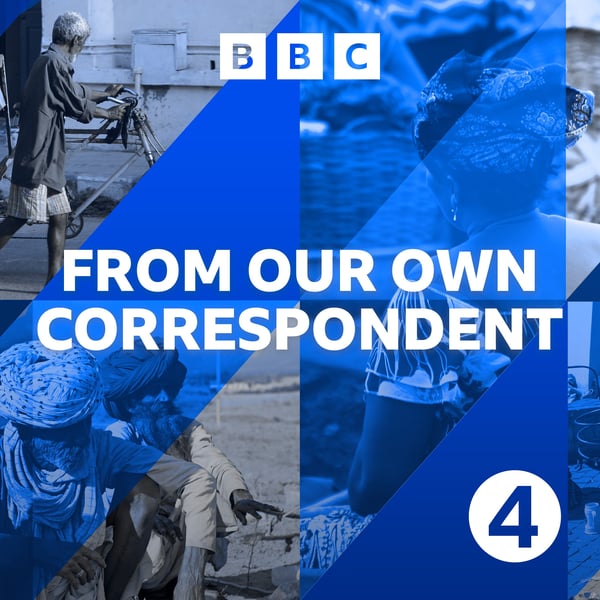The press under pressure in Indian-administered Kashmir
From Our Own Correspondent
BBC
4.4 • 1.3K Ratings
🗓️ 2 September 2023
⏱️ 29 minutes
🧾️ Download transcript
Summary
Transcript
Click on a timestamp to play from that location
| 0:00.0 | BBC Sounds, Music, Radio, Podcasts |
| 0:05.0 | Good morning. Today, the mood music in Moscow, with words of indifference, resignation, |
| 0:12.2 | and outright fear from its residents. In the far north of Nigeria, we talk to traders |
| 0:18.0 | and truckers who are feeling the consequences of the coup just over the border in Niger. |
| 0:24.4 | How public debate in Slovakia is riddled with suspicion and conspiracy theories as it |
| 0:30.3 | prepares for a general election. And why one indigenous language in Paraguay is still |
| 0:36.4 | alive and kicking and demanding to be heard with more respect? |
| 0:41.7 | First to India, where questions about press freedom are growing increasingly pointed. Television |
| 0:47.5 | and radio news shows are now often dominated by aggressively nationalist hosts, blustering |
| 0:53.9 | about anti-nationals, activists and journalists whom they blame for telling unwelcome stories. |
| 1:01.2 | But broadcast news isn't the only medium to feel the pinch. |
| 1:05.4 | Yogi Telemaya reports from Kashmir, where print reporters too have been targeted for punishment. |
| 1:12.8 | Whenever I visited Kashmir in the past, one of the first stops for our team from the BBC |
| 1:18.0 | was always the Kashmir press club. A two-story building with exposed red brick walls |
| 1:23.8 | in the centre of Srinagar. Over cups of steaming milk tea from the press club's small |
| 1:29.5 | cafeteria, I've met dozens of Kashmiri journalists who have been generous with their time and expertise |
| 1:35.8 | helping me understand the complexities of the region. So it was strange to not have such |
| 1:40.7 | a place to go to. Last year, the Indian government shot it down and took back the land |
| 1:46.1 | allotted to it. Press clubs across India operate on government |
| 1:50.6 | land. It's part of a long tradition set up soon after India became independent in 1947, |
| 1:57.3 | with the view that journalistic bodies provide a public service and are an integral part |
| 2:02.5 | of upholding the values of a democracy. The closure of the Kashmir press club was yet |
... |
Please login to see the full transcript.
Disclaimer: The podcast and artwork embedded on this page are from BBC, and are the property of its owner and not affiliated with or endorsed by Tapesearch.
Generated transcripts are the property of BBC and are distributed freely under the Fair Use doctrine. Transcripts generated by Tapesearch are not guaranteed to be accurate.
Copyright © Tapesearch 2025.

